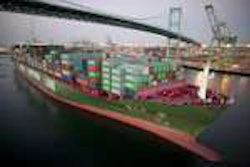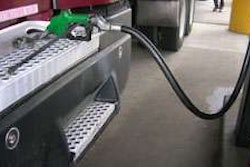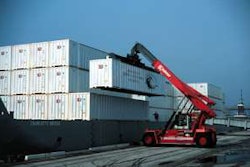Linde, a provider of liquefied natural gas fueling, announced the company is deepening its commitment to the fuel with the purchase of 20 LNG-fueled trucks. The trucks, expected to hit the road later this year, will account for 20 percent of Linde’s 2012 tractor purchases and will be integrated into Linde’s fleet of 700-plus trucks carrying cryogenic gases to customers throughout North America.
“Linde is now becoming a bigger LNG customer ourselves,” says Earl Lawson, vice president of energy solutions for Linde North America. “It’s testament to our belief in the benefits of LNG and our commitment to be a leader in this industry.”
The purchase is an outgrowth of a pilot project in southern California, where Linde tested the effectiveness of three LNG trucks hauling liquid carbon dioxide to customers throughout the Los Angeles metropolitan area. The success of the pilot project now allows Linde to move to commercial utilization of these trucks.
The project delivered several key benefits, Lawson says. “Not only did the pilot project help Linde save money on fuel, but it reduced Linde’s carbon footprint, since natural gas burns more cleanly than diesel, yielding between 20 and 30 percent fewer greenhouse gas emissions,” he says. “Reducing emissions is a key factor for Linde, since we have a large truck fleet and we are committed to adopting solutions that support sustainability.”
The company also was able to lessen its dependence on foreign oil. “One of LNG’s main benefits is that the natural gas used in the U.S. is produced domestically, which also creates domestic jobs,” Lawson says. In addition, the LNG-fueled tractors are lighter in weight than the diesel-fueled trucks they are replacing, which allows Linde to increase payloads and therefore improve service to customers.
Lastly, the LNG-fueled trucks are just more comfortable to drive, says Fred Kinkin, head of supply for Linde North America. “The tractors run a lot more smoothly and quietly – that’s a big benefit considering our drivers spend about 10 hours on the road each day,” Kinkin says.











